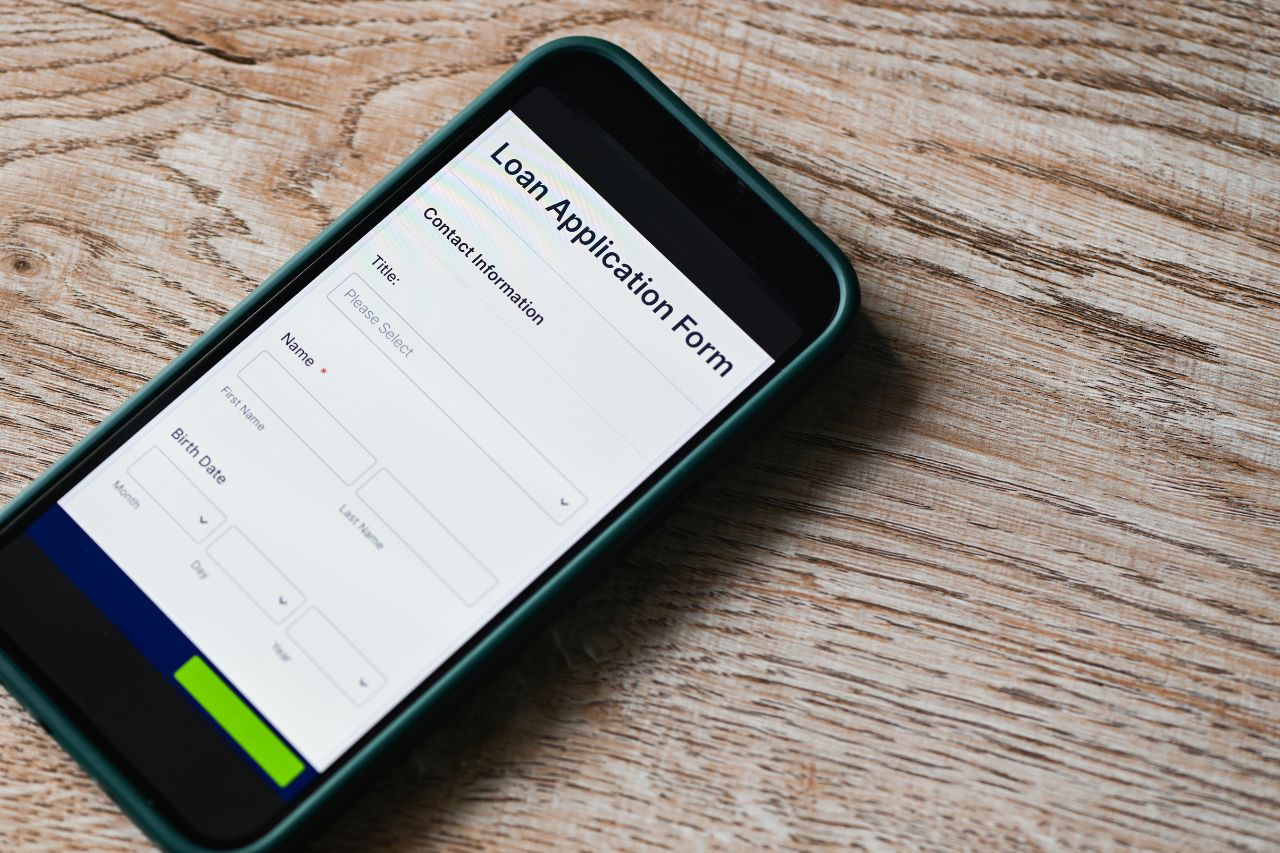Licensed money lenders in Singapore are basically companies approved by the government to give loans. They can lend to Singaporeans, permanent residents and even foreigners with valid work permits. These lenders have to follow strict rules set by the Ministry of Law.
There’s an extra layer of check for borrowers too. Licensed money lender online need to verify your existing loans with other lenders in Singapore before approving your application. This is done to make sure you won’t borrow more than you can handle.
One major advantage of getting a loan from a licensed money lender is speed. Unlike banks, they can often approve your loan and give you the money much faster, which can be helpful in emergencies. They may also be more flexible with their requirements compared to banks, making it easier for some people to get a loan.
It’s important to note that we can’t recommend any specific money lenders. Be careful to conduct your homework in order to select a lender with a good reputation.
Borrowing from Licensed Online Money Lenders in Singapore: The Pros & Cons
The Pros:
- Fast and Easy: Need money quickly? Licensed money lenders can approve your loan application in under 30 minutes, especially with all the documents ready.
- Open to All: Even if your annual income falls below S$20,000 and banks reject you, some SG money lender might offer you a loan.
- Hassle-Free Application: Forget tons of paperwork. Reputable money lenders focus on efficiency and customer service, offering a streamlined process.
- Second Chances for Credit Issues: Past loan defaults might not be a deal breaker. Some lenders consider your situation and offer a second chance, with some even skipping credit checks altogether. There are even loans specifically designed for bad credit.
The Cons:
- Costlier Borrowing: Be prepared for higher interest rates compared to banks. Money lenders take on more risk and provide quick cash, so their loans come at a premium.
- Late Payment Penalties: Missing a payment can be expensive. Late fees can reach S$60 per month, and late interest can go up to 4% monthly. But there’s a silver lining – these charges only apply to the overdue amount, not the entire outstanding loan.
- Processing Fees: Getting your loan approved might involve a processing fee of up to 10% of the loan amount. You only pay this after approval, though.
- Shorter Repayment Periods: Compared to banks, money lenders often offer shorter loan tenures. This means higher monthly installments and stricter budgeting to ensure you can repay on time. The shorter term can also mean you end up paying less total interest than a longer bank loan, but that depends on the specific loan details.
Learn more about the guide in finding the best licensed money lender near me.
Secured vs. Unsecured Loans: Picking the Right One from Online Money Lenders in Singapore
Online money lenders offer various loans, but first you need to understand secured vs. unsecured loans.
Secured Loans:
You put up something valuable like a car or house (collateral) as security. They typically have lower interest rates, larger loan amounts, and longer repayment periods. (Think car loans or home loans.)
However, if you can’t repay, you could lose your collateral.
Unsecured Loans:
No collateral needed, but they come with higher interest rates, smaller loan amounts, and shorter repayment periods. (Examples: personal loans, payday loans.)
So, which one should you get?
Unsecured loan:
Perfect for immediate needs like wedding costs, emergencies, or medical bills.
- Personal loans are versatile and can cover various expenses.
Secured loan:
- Ideal for business owners who need cash to grow their company (SME).
- Larger loan amounts available, but requires more documentation.
- You might also need a separate secured loan for business assets like a company car.
Secured loans offer better rates and terms, but come with the risk of losing your collateral. Unsecured loans are faster but more expensive. Consider your needs and choose wisely!
Borrowing Limits and Requirements: Secured vs. Unsecured Loans (Singapore)
Secured Loans:
These loans require collateral like a car or house. Here’s what to consider:
- Total Debt Servicing Ratio (TDSR): This limits how much of your income goes towards loan repayments (including the new loan). The maximum TDSR is 55% for property and car loans.
- Mortgage Servicing Ratio (MSR): This applies to HDB and EC flats. It limits how much of your income goes towards repaying your HDB or EC loan specifically. The maximum MSR is 30%.
- Loan-to-Value (LTV) Limit: This limits how much you can borrow for a car loan. You can’t borrow more than 60-70% of the car’s market value, depending on the model.
Unsecured Loans:
These loans don’t require collateral but have borrowing limits:
- Borrowers making less than S$10,000 per year:
- Singaporeans & PRs: Maximum loan of S$3,000
- Foreigners: Maximum loan of S$500
- Borrowers making S$10,000 to S$20,000 per year: Maximum loan of S$3,000 (all nationalities)
- Borrowers making S$20,000 or more per year: Maximum loan is 6 times your monthly income (all nationalities)
Secured loans offer better rates but risk losing your collateral if you can’t repay. Unsecured loans are faster but have lower limits and higher interest rates. Choose wisely based on your needs and income.
Understanding Interest Rates and Fees from Licensed Money Lenders in Singapore
Licensed money lenders Singapore have limits on what they can charge you. Here’s a breakdown:
- Interest Rate Cap: They can’t charge more than 4% interest per month on your loan.
- Reduced Interest Rate: They use a reducing interest rate, which means you pay less interest overall compared to a flat rate. (Think of it like a snowball getting smaller as it rolls.)
For example, let’s say you borrow S$3,000 for 6 months at 4% monthly interest. With a reducing rate, you’ll pay around S$433.71 total interest, not S$720 (which is what a flat rate would be). This is because the interest is calculated on the remaining balance after each payment.
Late Payments:
- Late Interest: If you’re late, they can charge a maximum of 4% late interest per month on the overdue amount, not the entire loan.
- Late Payment Fee: They can also charge a late payment fee of up to S$60 per month.
All charges (interest, late fees, processing fees) cannot be more than the amount you originally borrowed (loan principal).
Loan Terms:
- Loan Tenure: This varies by lender and loan type. Most offer up to 12 months, some offer 1-6 months, and a few might extend to 24 months.
- Loan Amount: This can range from 1 to 3 times your monthly income, depending on the lender.
- Processing Fee: Expect a processing fee of around 3.5% to 10% of the loan amount.
Shop around and compare rates and terms before borrowing.
Don’t Get Scammed! How to Find a Legit Money Lender in Singapore
Now that you know about interest rates and fees, let’s make sure you borrow from a legal money lender. Here’s how to avoid scams:
1. Check the Ministry of Law’s List:
- This list has all the authorized money lenders in Singapore and is updated regularly.
- You’ll find the lender’s name, address, phone number, website, and license number – so you can double-check everything.
- Find the list here: https://rom.mlaw.gov.sg/
2. Watch Out for Shady Advertising:
- Licensed money lenders can’t advertise loans through texts, calls, or social media.
- Legit lenders advertise in business directories, their websites, or at their physical office (think window signs, not flyers).
- Loan shark ads? Stay away! Don’t risk it, even if you need cash urgently.
3. Online Applications, In-Person Verification:
- You can start your application online, but even the fastest lenders require an in-person meeting.
- They need to verify your ID face-to-face at their office.
4. Look for their Licence
- A real money lender will display their license clearly for borrowers to see. Take your time, compare lenders, and never borrow from anyone who seems suspicious.
Picking the Perfect Money Lender: A Checklist for Singapore Borrowers
Choosing the right money lender can make a big difference. Here’s how to find the best fit for you:
1. Reviews and Reputation:
Search online reviews for the money lender. Look for genuine reviews and watch out for red flags like complaints or sketchy website practices.
2. Interest Rates and Loan Terms:
Compare interest rates and loan terms offered by different lenders. Consider your budget:
- Longer Tenure: Good for smaller budgets, with lower monthly payments but higher total interest.
- Shorter Tenure: Good for larger monthly payments, but you’ll pay off the loan faster with less total interest.
- Review all loan terms: Look at late fees, processing fees, and anything else you might not understand. Ask questions and don’t be afraid to walk away for a better deal.
3. Communication:
Pay attention to how the loan officer treats you. Do you feel respected and comfortable communicating with them? This can impact your stress levels and the support you receive during repayment.
Take your time, compare lenders, and never feel pressured to sign anything you’re unsure of. There are good options out there – find the one that works best for you!
Loan Application Rejected? Here’s How to Bounce Back in Singapore
So your loan application got rejected? Don’t worry, there are ways to improve your chances next time! Here’s what you can do:
1. Get a Guarantor
One reason for rejection might be the lender doubting your ability to repay. A guarantor with a good credit history can help. This is someone who agrees to repay the loan if you can’t. Choose someone you trust who can handle the responsibility.
2. Consider a Secured Loan
Secured loans involve putting up an asset (like a car) as collateral. If you don’t repay, the lender can take the asset to recover the money. This can make them more likely to approve your loan.
3. Show Consistent Income
Unstable income can be a red flag for lenders. Show proof of steady income, even if it’s not from a full-time job. Income from driving for Grab, renting out property, or running a business can all count.
4. Avoid Multiple Loans
Having too many active loans can make it appear difficult to repay a new one. Try to pay off some existing loans before applying for a new one.
Don’t be discouraged! By taking these steps, you can increase your chances of getting approved for a loan from a reputable money lender in Singapore.
Money Lender Says You Missed a Payment? Here’s What to Do
If a money lender claims you missed a loan repayment, don’t panic! Here’s how to handle the situation:
1. Check Your Records:
Receipts: Do you have receipts for all your payments? Receipts (digital or physical) should show the amount paid, date, and remaining balance. Always ask for a receipt if one isn’t offered.
Statements: Have you received Statements of Account (SOAs)? These show your payment history and outstanding balance. Request an SOA if you don’t have one or see discrepancies.
2. Check Your Bank
Bank Statements: If you paid by bank transfer, check your bank statements for proof of payment. Make sure the payment went to the lender’s registered company.
3. Contact the Money Lender
Schedule a Meeting: Talk to a loan officer and present your payment records. Discuss the situation calmly. There might be a simple mistake, like a missed email.
Request Clear Receipts: If previous receipts weren’t clear, ask for receipts that show the remaining balance after each payment.
Remember: Don’t ignore the issue. By staying calm, checking your records, and communicating with the lender, you can usually resolve the situation quickly.
Struggling to Repay Money Lenders in Singapore? Here’s What You Can Do
Falling behind on your loan payments can be stressful, but there are options. Here’s what you can do in Singapore:
1. Request a Payment Extension:
Talk to your money lender and explain your situation honestly. Negotiate a new deadline that you can realistically meet based on your financial situation. Don’t agree to a deadline you can’t afford.
2. Seek Help from Social Service Agencies:
If you’re overwhelmed by debt, the Ministry of Law recommends seeking help from social service agencies.
These agencies can offer:
- Credit Management Help: Learn how to manage your finances better.
- Credit Counselling: Get advice on dealing with your debt.
- Debt Repayment Plan Negotiation: They might be able to help you work out a repayment plan with your creditors.
3. File for Bankruptcy (Last Resort):
This is only recommended if your debt is over S$15,000 and you’ve defaulted on payments despite extensions.
Bankruptcy stops interest from accumulating and prevents legal action from lenders.
Remember that has serious consequences. It can have a long-term negative impact on your ability to borrow money in the future.
Don’t ignore the problem. The earlier you reach out for help, the easier it will be to find a solution.
Borrowing from Licensed Money Lenders in Singapore: 5 Key Points
Thinking about borrowing from a money lender in Singapore? Here are 5 things to know to make the most of it and avoid trouble:
1. Understand the Loan Contract:
Read it carefully! Don’t sign anything you don’t understand. Ask the loan officer to explain anything unclear.
Missing payments can lead to late fees, higher interest, and even lawsuits.
2. Know the Consequences of Default:
If you can’t repay, the lender can send debt collectors. Debt collectors must follow the Ministry of Law’s rules. They may send a demand letter or visit you, but they can’t harass you.
If things get out of hand, stay calm, try to communicate, and seek help from a third party or the police if needed.
3. Read the Fine Print:
Don’t rush into signing! Take your time to read every detail in the loan contract. Make sure you understand the interest rate, fees, and repayment terms before you sign.
Missing important details can cost you more money in the long run.
4. Beware of Illegal Money Lenders:
Steer clear of loan sharks! They offer easy loans but can trap you in scams or unfair contracts. You could end up with sky-high interest rates or even deeper debt.
If you see someone advertising illegal money lending services, report them to the police.
Legal money lenders won’t pressure you to sign or offer loans with unrealistic terms.
By following these tips, you can borrow responsibly and avoid getting into trouble with money lenders in Singapore.
| Legal money lenders | Illegal money lenders |
| Registered with the Ministry of Law | Not registered with the Ministry of Law |
| They advertise through business or consumer directories, their official website, or advertisements placed within or on the exterior of their registered place of business | They advertise through SMS, emails, calls, and WhatsApp |
| Conduct loan application and approval process with in-person verification | Conduct loan application and approval process entirely online without any face-to-face verification |
| Any fees are only paid when the loan is approved | May demand an upfront fee before loan approval |
| Approve loans only after thorough checking of factors that could affect the loan amount and repayment | Approve large loans without determining your ability to pay |
Consider Alternatives Before Borrowing from Money Lenders
While licensed money lenders can be a quick option for cash, it’s important to explore other possibilities first:
Banks typically offer lower interest rates, this saves you money overall and makes repayment easier.
However, banks might take longer to approve a loan and require a good credit score.
Money lenders can be a good option for:
- Urgent cash needs: They can approve loans and disburse funds faster than banks.
- People with bad credit: They may be more lenient with approval requirements.
Be aware of harassment from money lenders. Licensed lenders CANNOT:
- Spam you with texts or calls.
- Contact you at odd hours or repeatedly visit your home or workplace.
- Threaten violence, job loss, or damage to your reputation.
If you’re harassed by a money lender:
- Call the police and report the time, location, and details of the incident.
- Report the lender to the Credit Association of Singapore (CAS) and the Ministry of Law.
Explore all options before borrowing from a money lender. There are resources available to help you deal with lender harassment.



